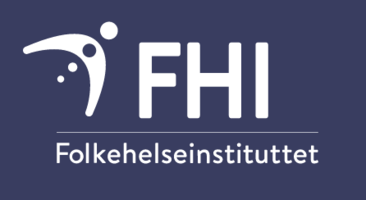Bedrift
FolkehelseinstituttetSøknadsfrist
08.12.2021Ansettelsesform
workTime.HeltidBransje
Forskning og utviklingUtdanningskrav
PåkrevetArbeidserfaring
ØnskeligAdresse
0456, OSLO
OSLO
Antall stillinger
1karriere-kode
4225907Se her for andre jobber fra Folkehelseinstituttet
- Oppdatert 17.11.2021

Utgått annonse
Søknadsfristen for denne jobbmuligheten er passert

Folkehelseinstituttet
Postdoctoral position to study the exposure and effects of nanoplastics in humans
Forskning og utvikling
Micro- and nanoplastics (MNPs) are frequently detected in air, water, and food samples. We do lack data on internal exposure to MNPs and on possible health effects in humans in order to perform a risk assessment. In order to address these knowledge gaps, the EU commission has funded five research initiatives collectively forming CUSP, the European research cluster that aims to understand the health impacts of MNPs. The Division of Climate and Environmental Health at NIPH is involved in one of these projects called POLYRISK (https://polyrisk.science), in which the focus is to quantify external and internal human exposures to MNPs in five real-life scenarios and to study their potential effects on the immune system. NIPH is responsible for delivering two of these human studies: a study on the health effects of rubber granules used in artificial turf for sports activities and a study investigating MNPs content in bottled drinking water. In addition, the project will develop and apply a human-based in vitro toolbox for testing epithelial transfer and immunotoxicity of MNP.
The Division of Climate and Environmental Health, Section of Chemical Toxicology, has a long tradition of studying the effects of chemicals and particles on the innate and adaptive immune system using experimental and epidemiological designs, including studies of the role of environmental factors in the development of allergies and autoimmune diseases.
Immunotoxiciology is a focus area in the EU Partnership for the Assessment of Risk from Chemicals in which the department participates. NIPH is involved in a number of H2020 projects, including EXIMIOUS (https://www.eximious-h2020.eu), POLYRISK and Ulthras (https://cordis.europa.eu/project/id/955390) where the effects of chemicals/particles on the immune system are being studied in laboratory models and in humans.
The person to be hired will work in Oslo. Preferred start date is in the Q1 of 2022, the project will last for a 3 year period.
Kvalifikasjoner:
Required qualifications:
- PhD degree with a focus on immunology.
- Experience with relevant experimental immunology methods, in particular CyTOF, flow cytometry and multiplex protein assays
- Hands-on experience with relevant bioinformatics and biostatistics methods for high-dimensional datasets, network analysis as well as R programming skills is an advantage
- Experience or strong interest in organizing and conducting human studies with compliance to legal and ethical rules and regulations
- Research experience demonstrated with publications in international peer-reviewed journals.
- Good English oral and written communication skills. Ability to communicate orally and written using Norwegian or an other Scandinavian language is an advantage.
Please upload a complete publication list with the application
Personlige egenskaper:
- Strong collaboration and social skills
- High work capacity and a positive attitude are important
- Highly motivated for science and strong problem-solving skills
- Structured, exact and result-oriented work approach
Vi tilbyr:
- An interesting position in a multidisciplinary, engaged and competent advisory and research environment
- Opportunities to contribute to public health challenges by cutting edge science
- Opportunity to translate data into knowledge that can be used in the regulation of chemicals/particles
- Salary based on qualifications following the state regulations
- Pension scheme in the Government Pension Fund
- Flexible working hours
Bedrift
FolkehelseinstituttetSøknadsfrist
08.12.2021Ansettelsesform
workTime.HeltidBransje
Forskning og utviklingUtdanningskrav
PåkrevetArbeidserfaring
ØnskeligAdresse
0456, OSLO
OSLO
Antall stillinger
1karriere-kode
4225907Se her for andre jobber fra Folkehelseinstituttet
- Oppdatert 17.11.2021
